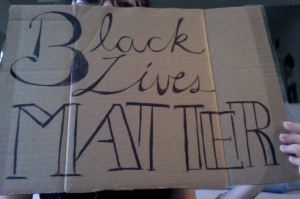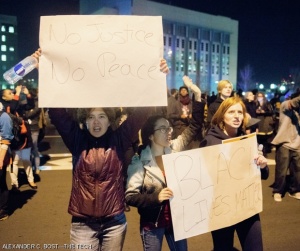
Reading the DGR book's chapter, Part I: Resistance, I read a detailed account of the culture I was living in. From the smallest thing to the biggest, Keith describes this indulgent adolescent culture. I was amazed to see so many diverse aspects of my experience capture so quickly and accurately.
Sex positive, kink positive, LGBT positive - MIT, especially east campus, claims to be all of these. But somehow the students never actually do anything about these issues. The rare action is about a highly specific and often innocuous on-campus change. Instead of taking concrete political action, they engaged in exhibitionist fantasies: replaying their exploits and identities in the safe space of their dorm, safe inside a privileged bubble. Worse, they push their exhibitionism onto unwilling people, especially young women. It's the screening of Deep Throat re-played in personal interactions and dorm policy.
Focusing on concrete action. Despite the large size of the alternative liberal culture on campus, the number of students who actually showed up to the Black Lives Matter on campus was tiny. The on campus event was arranged by the institute and streamlined into a press event for the President. When I emailed the dorm mailing list about a walk down Mass Ave and asking people if there was another student led event on campus, many students didn't even know that these protests were going on. Other uninformed plebeians choose to offer unasked for and baseless criticisms - why are these protests happening? why are they disruptive? wouldn't it be better to just give out flyers? I could barely believe that people who 5 minutes ago knew nothing about the protests felt that their quickly formed criticisms needed to be shared throughout the dorm rather than for us to talk about planning to take on-campus action.
In times when people tried to change things within the community (creating policy for integrating rooms and floors to be co-ed, removing the 'fetish' question from freshman orientation), the community was deeply hostile to discernment, consideration, and responsibility. When women of color spoke up about issues of hazing freshmen, the power dynamics of upperclassmen posing the questions, or the efficacy of the fetish question as representative of oppressed sexualities, we were faced with the full force of the community's ire. And the way this ire was expressed was racialized bullying. Instead of taking consideration or responsibility, the "accepting" liberal community chose to bully, isolate, and insult the women who spoke up.

I had been frustrated with the pushing of the new integration of floors when the details were completely undecided. My questions and concerns for details, planning, and responsibility were met with silence or even redirected by the leaders responding with anger. When I expressed my exasperation at the failure of the Institute to publicize the changed housing policy, I was faced with blank faces. We had done our little bit, written our policy, had our vote. So what if no one would be able to access the resource? So what if no one even knew the resource existed? (I could write a whole separate piece on the horizontal aspect of taking resources from females in order to appease femininity.)
To some degree the issue is laziness and a lack of commitment. Making actual change is difficult. Talking big within your safe in group is easy. Those risk willing people weren't interested in taking purposeful risks. Plenty of people hack. Few people protest.
A lot of privilege goes into the MIT culture. For example: You can get arrested for hacking. If you get arrested, your scholarship can be removed. You can also lose your job. On the other hand, your dorm mates may look down on you for not trying a key part of the culture. (Aria Plus Cat)
[caption id="attachment_473" align="alignnone" width="300"]
 It me![/caption]
It me![/caption]
[…] Making actual change is difficult. Talking big within your safe in group is easy. Those risk willing people weren’t interested in taking purposeful risks. Plenty of people hack. Few people protest. (Aria Plus Cat) […]
ReplyDelete